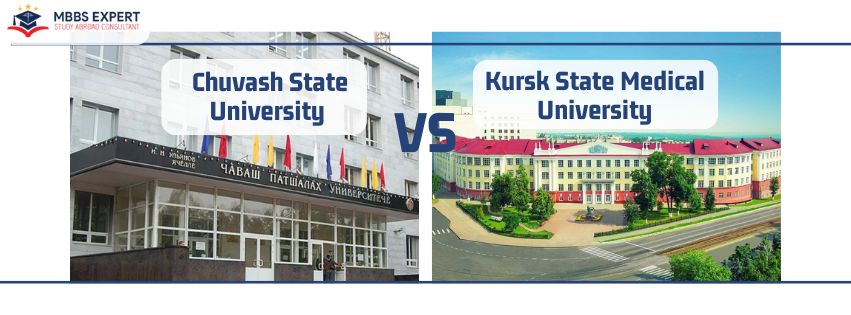Study MBBS at Ingush State University, Russia – Your Gateway to an Affordable Medical Education…
Comparing MBBS Programs Tajik National University vs. Indian Medical Colleges
![]()
Comparing MBBS Programs Tajik National University vs. Indian Medical Colleges
Comparing MBBS Programs: Tajik National University vs. Indian Medical Colleges
Choosing where to pursue a Bachelor of Medicine, Bachelor of Surgery (MBBS) is a crucial decision for aspiring medical students. Tajik National University (TNU) in Dushanbe, Tajikistan, and medical colleges in India represent two distinct pathways towards achieving this goal. In this comprehensive comparison, we explore the key aspects that prospective students should consider when weighing their options between TNU and Indian medical colleges.
Academic Excellence and Curriculum
Tajik National University (TNU): TNU offers a robust curriculum designed to meet international standards in medical education. The MBBS program at TNU emphasizes a blend of theoretical knowledge and practical skills, preparing students for clinical practice effectively. The university’s commitment to academic excellence is reflected in its modern facilities and experienced faculty members who often include international experts.
Indian Medical Colleges: India boasts a vast network of medical colleges, both public and private, renowned for their academic rigor. The MBBS curriculum in Indian colleges is structured to align with the Medical Council of India (MCI) guidelines, ensuring comprehensive coverage of medical subjects. Students benefit from exposure to diverse clinical cases and medical research opportunities, contributing to a holistic learning experience.
Infrastructure and Facilities
Tajik National University (TNU): TNU provides state-of-the-art infrastructure conducive to medical education. Modern classrooms, well-equipped laboratories, and affiliated hospitals offer students hands-on learning opportunities. The university campus fosters a conducive environment for academic growth, with facilities catering to the practical needs of medical training.
Indian Medical Colleges: Indian medical colleges vary in infrastructure, with some government institutions facing resource constraints compared to private counterparts. However, many premier institutions in India offer world-class facilities, including advanced research labs, simulation centers, and comprehensive libraries. Clinical training is often conducted in affiliated hospitals with diverse patient populations.
Clinical Exposure and Practical Training
Tajik National University (TNU): TNU emphasizes practical training from the early years of the MBBS program. Students gain clinical exposure through rotations in affiliated hospitals, applying theoretical knowledge to real-life medical scenarios. This hands-on approach ensures graduates are well-prepared for the challenges of medical practice upon completion of their studies.
Indian Medical Colleges: Clinical exposure in Indian medical colleges is extensive, with students typically engaging in rotations across various specialties during their final years. The large patient base in Indian hospitals provides ample opportunities for learning and honing clinical skills under the guidance of experienced physicians. This exposure is invaluable for building confidence and competence among medical students.
Faculty Expertise and Mentorship
Tajik National University (TNU): TNU attracts faculty members with diverse international backgrounds and expertise in their respective fields. The faculty-to-student ratio ensures personalized attention and mentorship, fostering a supportive learning environment. Students benefit from the guidance of seasoned educators who are committed to academic excellence and professional development.
Indian Medical Colleges: Indian medical colleges boast a mix of experienced professors and clinicians who bring a wealth of knowledge to their teaching roles. Mentorship opportunities vary but are often robust, especially in top-tier institutions where faculty members actively engage in research and clinical practice. The mentorship received plays a crucial role in shaping the future careers of medical students.
Affordability and Cost of Living
Tajik National University (TNU): Studying at TNU offers a cost-effective option for Indian students seeking quality medical education abroad. Tuition fees at TNU are competitive compared to private medical colleges in India, and the overall cost of living in Dushanbe is relatively affordable, making it an attractive choice for budget-conscious students.
Indian Medical Colleges: The cost of medical education in India varies widely depending on whether students opt for government-subsidized colleges or private institutions. Government colleges offer subsidized tuition fees, making them more accessible to students from diverse socio-economic backgrounds. However, private medical colleges often charge higher fees, along with additional costs for accommodation and living expenses.
Cultural Experience and Global Exposure
Tajik National University (TNU): Studying at TNU provides Indian students with a unique cultural experience in Tajikistan. Dushanbe, the capital city, offers a blend of historical charm and modern amenities, allowing students to immerse themselves in a different cultural milieu. The international exposure gained at TNU enhances students’ cross-cultural competence, preparing them for global healthcare challenges.
Indian Medical Colleges: Medical colleges in India offer a culturally rich environment with diverse student populations from across the country. Students benefit from exposure to India’s rich cultural heritage and traditions while studying alongside peers from various linguistic and cultural backgrounds. This exposure contributes to a broader perspective on healthcare delivery and patient care.
Conclusion
Choosing between Tajik National University and Indian medical colleges requires careful consideration of academic, practical, financial, and cultural factors. Both pathways offer distinct advantages, from TNU’s international exposure and cost-effectiveness to India’s established medical education infrastructure and diverse clinical opportunities. Ultimately, the decision should align with each student’s career aspirations, academic goals, and personal preferences for a fulfilling journey towards becoming a medical professional.





